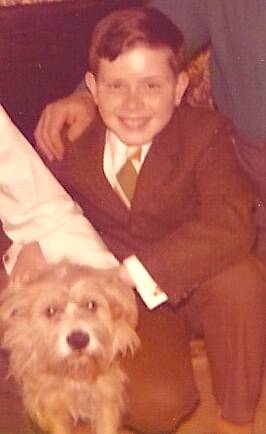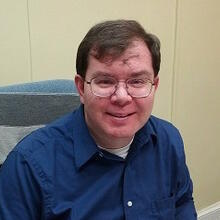The summer of 1974 was one of uncomprehending discontent; it was when everything was in a flux—and the wider world was no better. Here, in the United States, a presidency was endangered as a result of political gamesmanship; it was the summer of countless committees, investigations and TV coverage of a government that appeared to be no longer being relevant to ordinary lives. People (young and old) were looking at each other as if they were the ones wrecking the American dream. And as for the rest of the world, politicians were leaving the scene through death or forcible removal—they were like flies, they were either being shooed aside or swatted away. And in my case—my own domestic tranquility was to experience a miasma of uncomprehending changes as well: it was the summer I turned 13 years old. In other words, it was the year I officially became a teenager.
I could not believe what was happening. Up until that point, life was basically running on auto-pilot for one whose Bronx childhood was one of learning and adventure, blissfully unaware of the outside world. I was beginning to grow up: my voice was starting to thin out, and my head was pumping out more oil than the fields of Saudi Arabia, and hair was appearing everywhere—and that was just the beginning. I was soon to become acquainted with Bic razor blades and Barbasol shaving cream. My own sister warned me that this was coming, saying tauntingly that I was becoming a teenager. “I am not!” I exclaimed, with all of the burgeoning newfound adolescent angst I could muster. Physiological developments were the order of the day. I had a happy world—why did it have to change now? Nature was taking its course with me, the unwilling participant. I was entering a battle I could not overcome—or win.
Fortunately, while everything was changing, there was one constant I could rely on, besides my mother, my father and my sister. A living, breathing being, he was as reliable a stalwart as you could possibly get: he stood on four legs, loved a good baked chicken dinner and waved a happy tail whenever we made contact. He was my best pal, the lodestar of my childhood and the mainstay of those terrifying teenage years—my dog, Rusty. We called him that when we first saw him, because it fit: he had very fine, black, white and brown hairs, brown being the predominant color. The only other Rusty I knew of played for the Mets, but he didn’t have a tail on him (at least, not that I was aware of) but he wore blue and orange stripes. But as far as our new dog was concerned, rusty was his color, Rusty was his name.
From the moment Rusty entered our lives, he and I were inseparable. I was very glad to have him in that formative period of my life. Rusty was there when the other kids were mean and nasty, and he was there when the adults were too busy to be bothered being questioned about all kinds of things. Rusty’s was a reassuring presence; he seemed almost human to me. But he had one big fear I tried to help him with, and that was thunderstorms. This normally brave little dog who would come to anybody’s immediate aid and defense would quail before the onset of a storm, with its booming thunder and flashing lightning. He would start to breathe a little more heavily, pant from the exertion, and seek shelter wherever he could find it, whether it was under an understanding human arm, under the hutch where the dishes were kept, jump up onto the couch and snuggle under a pillow, or if all of the above were unavailable, do the really drastic thing—run to the bathroom, jump into the tub and pull the shower curtain with his teeth—and this from a dog who meekly endured his monthly bath.
Rusty and I were great walkers, unless I didn’t get up in time for our morning constitutionals in which case Dad did the honors. If Rusty was brave and loyal, he was also smart for a terrier. He knew the family routines; he knew that we ate his favorite foods on Sundays and he knew where his leash was kept. One summer day, when he needed to get out of the house fast and there were no takers, he took matters into his own paws: he simply jumped up and caught his leash off the hook, carried it in his mouth and went through the open outside door and screen door and escorted himself across the street to the park, conducted his business, and calmly sauntered back in the house with nobody the wiser for it. How he did it without getting hurt—or killed—astounded me, but what perplexed my parents even more was how the doors were left open in the first place.
We were growing up together, Rusty and I. He barked while I read, he ran while I walked. But darkening clouds were gathering on the horizon, and not just for an embattled president in far-off Washington. When the morning of August 9, 1974 came, I hooked Rusty with his leash and took him for his usual walk on another humid summer day. We sauntered up the block to Sam’s candy store where I was to buy that day’s New York Daily News. I put the fifteen cents I had in my pocket on the plastic coin tray on the countertop, said hello to Sam and grabbed the paper and continued with Rusty on our walk. Then I looked at the headline in large black, block letters: “NIXON RESIGNS.”
The world suddenly became serious—but there would be even more shocks in the future to come. Before long, I would experience the death of a beloved neighbor, know what bullying really meant (and not from the impatience of a math teaching nun). And I would come to learn a new and very unpleasant vocabulary word—one that I would know when discovering the first stirrings of love: unrequited. And in a few years, I would experience the full import of a question that was asked of us in a previous religion class about our "saddest day"--only it would involve the departure of my four-legged friend.
It is so long ago now, but the memory of it still stings. By the time I was ready for high school, we had moved a few blocks to be closer to the heart of the neighborhood: the complex that was the grammar school, the high school, the church, the rectory and the convent. And in our new apartment building (right across from the church), there was an ironclad rule: no pets. It didn’t matter that the two spinster landlords had a dog of their own, an ugly black poodle. So the day came when I walked him for the last time, to meet the nice elderly man on the Grand Concourse whom Dad knew would take good care of Rusty. It took everything within me to be brave; I patted Rusty one last time and gave him a grateful hug. I thanked the man who promised that I was always welcome to visit Rusty. But of course, that visit would never materialize. When I handed over the leash, I turned the corner, stole one last look, walked away and headed for home. I was beginning to face things far more serious than the odd acne or perplexing math question—I was encountering life as it was (is) and I found it not to be as pleasant, easy, or understandable as I thought.
But all of that was a few years off; in August 1974, I was having another summer with Rusty as a mid-westerner president by the name of Gerald R. Ford was assuming awesome new duties in our nation’s capital. September—and a new school year—was beckoning, and it was soon back to the schoolbooks. But the lessons I was to subsequently learn were not just to be found in the confines of a classroom, but in the lived experience of life. Unfortunately for me, Rusty—my best pal—would no longer be a part of it.
Joseph McAuley is an assistant editor at America.








